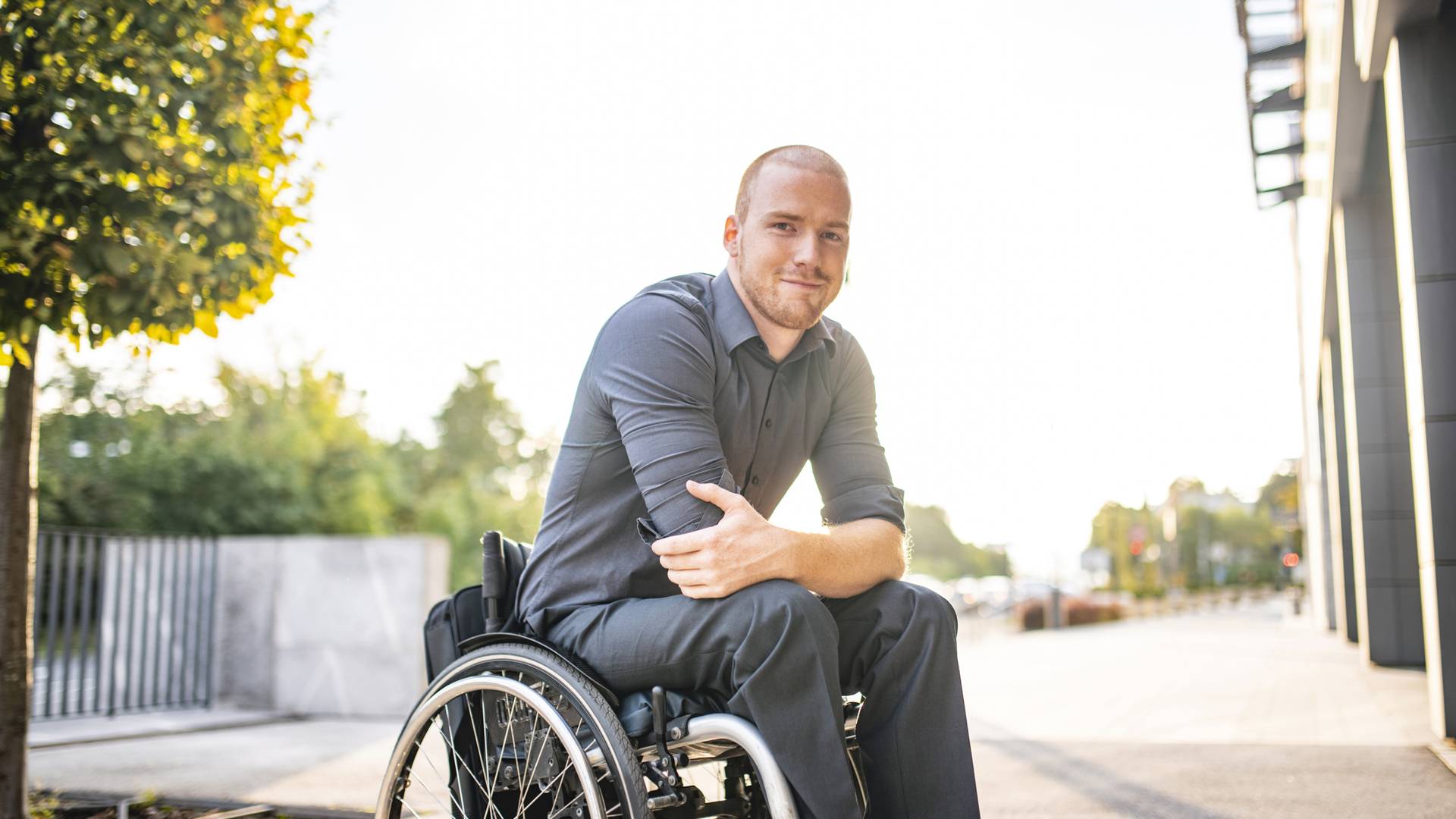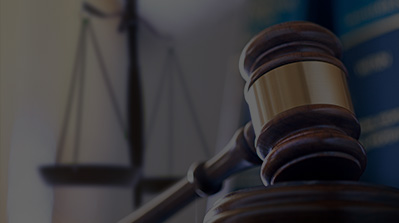Treatment Levels
The following is a list of the outpatient and inpatient treatment levels, which are determined by the licensed treatment provider during the first few weeks of drug court:
1. Outpatient
- Level II: This is the basic outpatient program. It is a minimum of 12 weeks, twice per week (24 sessions);
- Level III: This is the intensive outpatient program. It is also a minimum of 12 weeks, but four times per week (48 sessions);
- Veteran's Treatment: V.A. outpatient services for eligible military members and family.
2. Inpatient
- Level I: This involves 6 months of residential treatment, followed by aftercare;
- Level II: This involves 12-18 months of residential treatment, followed by aftercare;
- Veteran's Treatment: VA residential services for eligible military members and family.
- Jail Treatment Program: Pinellas County Jail drug treatment followed by aftercare.
Participants are encouraged to establish and maintain a support group to assist them after they have completed treatment.
Drug Court PTI
In another section of our website, we discuss in detail what PTI is, what it requires, and the benefits of successful completion. There are, however, some aspects of drug court PTI that are unique and for that reason, more detailed information on PTI is included here.
What is PTI?
PTI is "Pre-trial intervention", a diversion program offered by the Pinellas county state attorney's office to individuals charged with their first felony offense. PTI is not a right, it is a privilege and, and stated above, acceptance into, or removal from, the program is in the sole discretion of the state attorney. PTI is typically an 18 month program supervised by the Florida Department of Corrections. The drug court defendant will be assigned a PTI officer, who is a certified probation officer. The defendant will be required to meet with his or her probation officer once per month and his or her employer will be notified that he or she is in the PTI program (this will include the nature of the charge). Every four to six weeks, the court will require the defendant to attend what is called a "judicial review" hearing to discuss his or her progress in treatment and compliance with other conditions. Attendance at these hearings is mandatory. Although PTI is 18 months long, the defendant may request an early dismissal of his or her charges is in strict compliance with all aspects of his or her PTI agreement. This early dismissal could occur at the twelve month mark (and in some instances, even earlier). Attitude and compliance play a big role in this determination.
As stated above, drug court PTI requires the defendant to undergo a substance abuse evaluation and complete the appropriate treatment recommendation (inpatient or outpatient). Community service hours may be required and compliance with other programs may be required depending on the nature of your offense.
Why PTI?
If you are given the privilege of PTI, you are well on your way to having your pending felony charge(s) dismissed. When that occurs, you can say that you were never convicted of the offense. The arrest record will still exists but, depending on your prior history, you may qualify to have your arrest record expunged. For more information on this, see the Sealing and Expunging section of our website. Avoiding a felony conviction is critical; it could affect your ability to obtain certain types of licenses (professional and otherwise), to qualify for housing, college funding, employment, and really your overall quality of life.
Do I qualify for PTI?
To initiate the process, you must first fill out a PTI application. If there are mistakes, it may delay your acceptance. Intentional misrepresentations, relating particularly to your prior record, could disqualify you altogether. Your prior arrest record, for purposes of the application, includes any charges that required you to attend court and resolve your case. It includes all juvenile charges, military charges, and out of state charges. It does not matter how long ago.
As part of the application process, you will also be required to provide a valid address and phone number. The address and phone number you provide will be used to contact you regarding the program. If your address or phone number change after the application has been submitted, it is your responsibility to update all necessary parties (your attorney is a good start; he or she can then inform the state, the clerk, ROR or your bondman as applicable, and your treatment provider).
What happens in court if I apply for PTI?
- You fill out an application. I usually have my clients come into court well in advance to do this. Also, I usually have the discovery from the state at that point, which includes a RAP sheet. I am always very careful to make sure that my clients accurately complete it, especially as it relates to criminal history.
- You will be set for an evaluation to determine which level or treatment is appropriate. In Pinellas county, these evaluations are conducted by Solutions Behavioral Healthcare Consultants (I have included more information on Solutions below). You will be given a yellow sheet of paper with the date, time and location on it. Please make every effort not to miss the appointment and to not be late. Once the judge is given your date (while you are still in court), she will set your next court date sometime shortly after the evaluation date, and you will receive a printed notice of your next court date (which you must sign for). The state will not consider your PTI application complete until you have attended the evaluation. The fee for the evaluation is typically $125.00.
- At your next court hearing, if you have attended the evaluation, you will receive a subsequent "judicial review" hearing date (same place, same judge, different day). You will also be provided with an orientation date with your treatment provider. Please don't miss this one either; it may cause the state to remove you from the PTI program.
What happens after I submit a complete PTI application and my judicial review hearing is set?
If your PTI application is rejected, your case will be set for what is called a "pre-trial conference". If your application is accepted by the State Attorney's Office, it will then be sent (by the State Attorney's Office) to the Florida Department of Corrections for investigation. To complete this investigation, DOC will assign your application to a PTI officer. DOC will send a letter to the address you provided on the application with the date, time, and location of your PTI interview, as well as instructions and paperwork you will be required to return to the PTI officer. This is a meeting you really don't want to miss either. It is important that you don't confuse your PTI interview date with your treatment date. You must attend both.
If you were required to plea to a traffic charge (such as DUI) in order to apply for PTI, and you were placed in probation, you will not be required to see a probation officer and a PTI officer. You must comply with all the instructions of your probation officer and if you are accepted into PTI, the PTI officer will also supervise your probation case. In other words, you will only be required to meet with one office once you are accepted into PTI. Do not assume you do not have to report to your traffic charge probation officer once you attend the PTI interview - wait until your PTI officer tells you that he or she is now supervising you on the traffic charge and the drug court felony charge.
What happens at the PTI interview?
First, you will be required to provide your PTI officer with your current address and phone number. You will be required to provide your employer's information, such as complete address, phone number, and the name of your supervisor. You should also be aware that you may be asked to submit to a drug test at this interview.
Next, you will sign a PTI contract. This is a contract between you and the State Attorney's Office wherein you agree to complete certain conditions (including the treatment recommendation, payment of financial, obtaining a GED, etc.), so that your charges can be dismissed. Your attorney and the Assistant State Attorney will sign the contract after you sign it (note: neither of them is there; this is handled by mail). Make sure you read the contract thoroughly before you sign it and keep the copy you are provided. The PTI officer will review with you all terms and conditions that must be satisfied as a condition precedent to your charge(s) being dismissed.
You will be required to successfully complete treatment (of course). You may also be required to make best efforts at obtaining a GED. While you may not be denied a dismissal of you charges for failing to obtain a GED, you will be denied if you fail to make a bona fide effort. You will usually be found to have made best efforts if you attend the GED classes, take the pretest and provide a letter from your teacher outlining your efforts and progress. On line GED courses are discouraged in drug court because there is no way to evaluate your efforts.
You may also be required to complete a certain number of community service hours within a certain time period. You may also be required to attend an anger management class, parenting classes, or other programs that the State Attorney's Office deems appropriate.
You should also be aware that there will be certain monetary obligations associated with PTI. You will be required to pay a monthly cost of supervision, as well as court costs, drug testing fees, police investigative costs, and other fees. Your PTI officer will advise you of the minimum amount of money you will be required to pay every month. This will not, however, be the amount you will need to pay if you want an early dismissal. For that to occur, all outstanding monetary obligations must be paid in full.
What happens after the PTI interview?
The signed PTI contract will be sent to your attorney for signature and then to the State Attorney's Office for signature. Once all parties have signed the contract, a copy of the contract and an order placing you on PTI is sent to the judge for signature. The entire process could take 6-8 weeks or longer. During this time, you will be attending judicial review hearings and you will likely have already started your treatment program. You will be reporting your PTI officer while the PTI order is being prepared and then signed by the judge.
After your PTI interview, you will not be mailed appointment letters. You will get your next appointment date when you meet with your officer. It is your responsibility to keep track of this date.
The following are some recommended tips for successfully completing drug court PTI:
- Get a folder and keep all of your paperwork in it. Keep a copy of your PTI contract. Keep all appointment letters and court hearing notices in there too.
- Buy a calendar and use it. You will have three different dates to keep track of: your court dates, your treatment dates, and your PTI officer appointment dates. Missing any one of these could cause you to be removed from the PTI program.
- Don't miss or be late for any appointments.
- Be honest throughout the process. Really - trust me on this.
- Pay some amount toward your costs each month.
- Do not assume anything. If you have questions, ask your PTI officer, or court staff at your judicial review hearing. Your attorney should also be able to tell you everything you need to know and if not, he or she should be able to get the answer for you quickly.
Division Z
For offenses that are committed on or after July 1st, 2009, the defendant may be placed into a post-adjudicatory treatment based drug court program, if that person meets the following criteria:
The primary offense is a third degree felony, including a third degree burglary (or a second degree purchase of controlled substance);
The person has no current or previous convictions for a forcible felony, as defined in Florida Statutes § 776.08;
The persons sentence points score (on the sentencing guidelines) is no less than 44.1 and not more than 52 points;
The person otherwise qualifies under Florida Statutes § 397.334(3).
The court finds, or the defendant admits that the defendant has violated his or her probation or community control and the violation to due ONLY to a failed or a suspect substance abuse test;
The person's sentencing point score is not more than 52 points after the points for the violation are included;
A guideline departure would be necessary to avert an impending prison sentence;
The underlying offense is a third degree felony, including a third degree burglary (or a second degree purchase of controlled substance);
The person has no current or previous conviction of a forcible felony, as defined in Florida Statutes § 776.08;
The person otherwise qualifies under Florida Statutes § 397.334(3).
Entry into the post adjudicatory treatment based drug court program must be based on the sentencing court's assessment of the person's criminal history, substance abuse screening outcome, amenability to the services of the program, total sentence points, the recommendation of the State Attorney, victim input (where applicable), and the persons agreement to enter the program.
Satisfactory completion of the program must be made a condition of the person's probation or community control;
The person must be fully advised of the purpose of the program and the person must agree to enter the program;
The original sentencing court shall relinquish jurisdiction of the person's case to the post-adjudicatory drug court program until the person is no longer active in the program, the case is returned to the sentencing court due to the person's termination from the program for failure to comply with the terms thereof, or the person's sentence is completed.
Florida Statutes § 921.0026(2)(m) provides the mitigating circumstances under which the sentencing court may depart to sentence a person to the post adjudicatory drug court program.
Persons in the post adjudicatory drug court program are subject to violations of probation or community control. Violations based solely on a failed or suspected substance abuse test administered pursuant to Florida Statutes § 948.01 or Florida Statutes § 948.03 are heard by the judge presiding over the post adjudicatory drug court program. The judge shall dispose of any such violation after a hearing on, or an admission of, the violation, as he or she deems appropriate if the resulting sentence or conditions are lawful.
Procedural Steps
- The State Attorney's Office identifies qualifying defendants at their first mandatory court appearance (usually a pre-trial conference);
- The division judge will provide the person with a 300 club brochure for review with his or her attorney;
- If the person appears amenable, the division judge will QC 300 Club drug court staff to provide the person with a substance abuse assessment date and a pre-trial conference date is set three weeks out. If the person is in custody, the 300 Club drug court staff will arrange for an in custody assessment and a pre-trial conference will be set. The person will sign a Consent for Disclosure of Confidential Information Form (original filed, copy to 300 Club drug court staff) at this hearing.
- At the next pre-trial conference, if the person has completed the assessment, the court, state, and defense counsel will be provided with a copy of the assessment by the 300 Club drug curt staff. The judge will confirm the person is amenable to the recommended treatment, and that the person is agreeing to enter the program as an alternative to a prison sentence. If appropriate, the judge will sentence the person to an agreed upon departure and the state will designate on the guidelines that the departure is pursuant to Florida Statutes § 921.0026(m). The judge will set a judicial review in Division Z four weeks out on a Thursday afternoon at 2:00 pm. 300 Club drug court staff will provide the person with treatment information.
- Standard 300 Club sentence is as follows:
Withhold of Adjudication, 24 months of drug court probation, successful completion of the designated level of treatment (see above), no alcohol, obtain a GED (where appropriate), submit to a DNA sample, pay court costs, cost of prosecution, and satisfactorily complete the program.
The person may apply for early termination after one half of the probation term is completed.
An adjudication of guilt is mandatory on all DUI and Fleeing and Eluding cases.
Transitional housing can also be ordered regardless of the level of treatment required.
Veteran's Treatment Court
Veteran's treatment court in Pinellas county is a court supervised, comprehensive program for non-violent felony and misdemeanor offenders, who are serving, or who have served, in the armed services. This is also voluntary program that requires frequent appearances before the veteran's treatment court judge, substance abuse and/or mental health treatment, and frequent random testing for substance abuse.
Successful completion of the veteran's treatment court plan will result in the dismissal of charges against the person entering the program through PTI (those facing a first time, non-violent, third degree felony or misdemeanor charge and admitted at the sole discretion of the state attorney).
For those entering veteran's treatment court as a condition of probation (post-plea VTC), successful completion may result in a withhold of adjudication and/or a reduced period of probation.
All participants are required to make frequent court appearances (judicial reviews); the person will typically appear before the VTC judge every 30 to 45 days.
Veteran's treatment court is a twelve to twenty-four month program. Persons who have completed treatment, remain drug free, and complete all of their PTI or probation requirements may petition the court for early termination.
Eligibility Criteria
Eligibility is determined by the State Attorney's Office after submission of an application to participate in veteran's treatment court. A person is eligible for admission if:
- The person has served or is serving in the United States armed forces, including National Guard and reserves;
- The charge or charges stem from physical injuries or mental health issues that are the result of the person's military service;
- The charge or charges are misdemeanors or third degree felonies;
- The person's has not previously participated in VTC, unless this criterion is specifically waived by the State Attorney's Office;
- The person's mental health and/or substance abuse assessment indicates that he/she is amenable to mental health and/or substance abuse treatment.
Treatment Options
- VA Core Outpatient (once per week);
- VA Intensive Day Treatment (minimum of three hours per day, three days per week);
- Outpatient Level II (with a local provider, twice per week);
- Outpatient Level III (with a local provider, four times per week);
- Short-term residential at VA substance abuse treatment program (28 days);
- Long term residential (local provider, 6-18 months as applicable).
Treatment may also include domestic violence counseling, anger/conflict resolution groups, and other veteran's specialty groups, depending on the nature of the underlying circumstances.
Rewards and Sanctions
Like Division N and Division Z, frequent judicial review hearings enable the judge and the VTC team to closely monitor the person's progress in treatment and the results of drug screening. Based on success or setbacks, the judge will reward compliance or sanction non-compliance. Rewards may include acknowledgment in open court, permission to travel out of county or out of state, less frequent court appearances, phase advancement, and/or early termination of supervision.
A person who fails to comply with the treatment program and rules of VTC may receive a court reprimand, increased drug testing, increased time in treatment, re-evaluation and increased intensity of treatment, more frequent court appearances incarceration, extension of program participation, added conditions of supervision, or removal from veteran's treatment court.



 Helping Good People Through Difficult Situations
Helping Good People Through Difficult Situations Take Advantage of Client Solutions
Take Advantage of Client Solutions Your First Meeting with My Firm is Free
Your First Meeting with My Firm is Free


